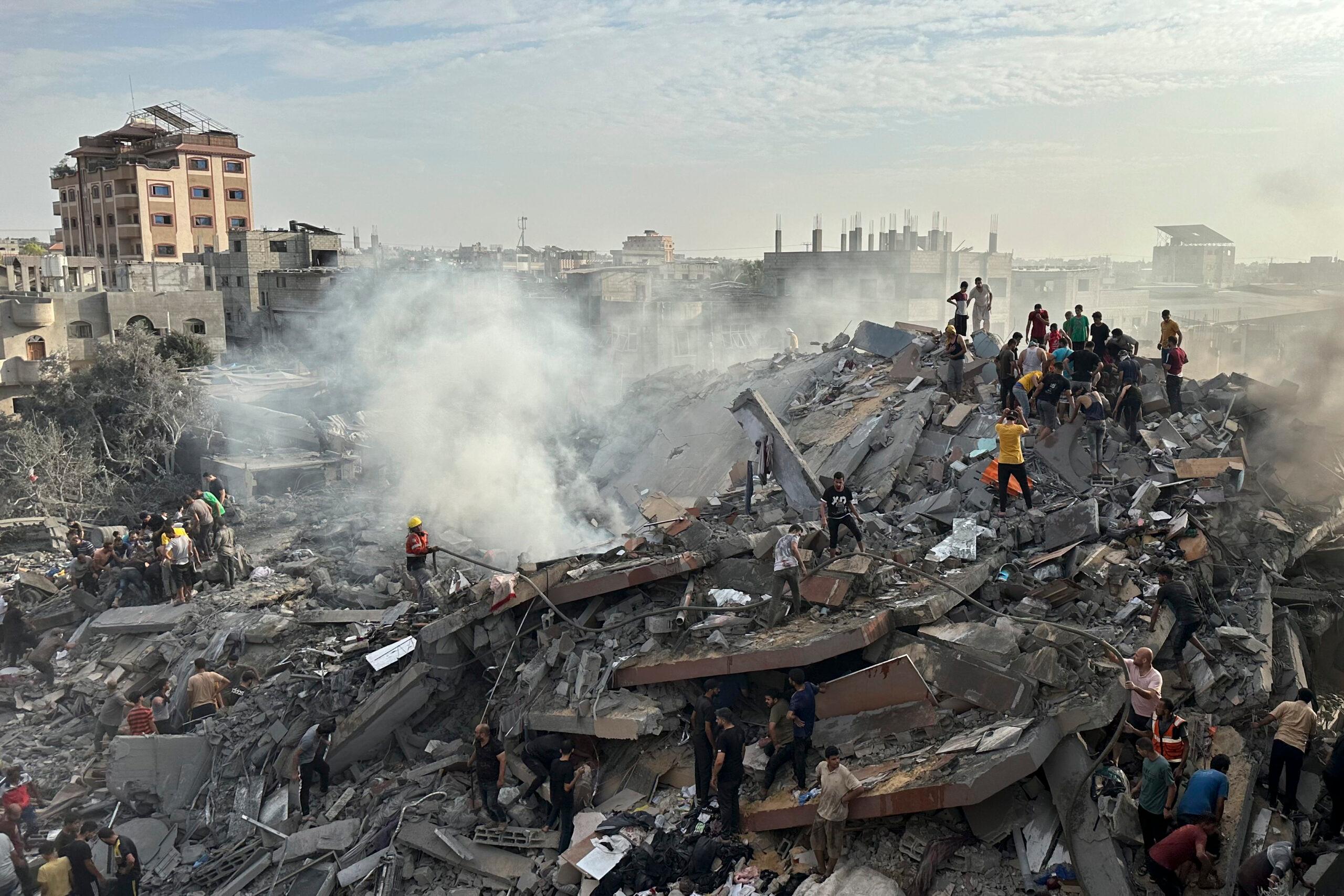
Since Hamas militants attacked Israel last month and the Israeli retaliation that has followed, Coloradans of Palestinian descent have been reeling from the aftermath of endless attacks on Gaza.
More than 3,000 people of Palestinian descent live in Colorado, and they’re at once mobilized and activated, while also grieving and comforting each other. They’re struggling to support family abroad, while spending time with each other, in classrooms, rallies, and mosques.
A Colorado-based state representative, a local activist, and an English professor – all of whom identify as Palestinian – are using their platforms to bring attention and discussion to the ongoing crisis, as Coloradans with family in Gaza are receiving devastating news from loved ones, and trying to do what they can to help.
Hamas, which is based among civilian Palestinians in Gaza, attacked Israeli civilians on Oct. 7, killing about 1,400 men, women and children, including more than 200 at a music festival. Hamas took at least 239 civilians and Israeli soldiers hostage. In retaliation, Israel has been bombarding Gaza with missile attacks and has now moved ground forces into the territory, vowing to destroy Hamas.
Caught in the middle are Palestinian civilians, who are running out of food, water and safe shelter. The United States and other countries have requested that Israel periodically pause the bombings so that humanitarian aid can enter Gaza from Egypt, but that so far has not happened.
Nadia Zuaiter
Images of collapsed buildings haunt Nadia Zuaiter, 47, a Lone Tree-based accountant who shares a large suburban house with her husband and children. She said in an interview in her living room that she’s been crying every night for the past three weeks. However, she did not betray tears or emotion readily, saying she’s always worried about family in Gaza – but never with such deadly consequences.
“All Palestinians had this sense of dread because we knew what was coming next,” she said of the anticipated aftermath of the Hamas attack. “We knew that this time the bombing was going to be really, really bad. So there was a sense of dread, of fear, anxiety,” said Zuaiter, whose parents are from Gaza and Jerusalem. She was born in Houston and relocated to Colorado when she got married.
She’s been keeping up with her cousins, grandmother and other relatives there. When an airstrike hit a refugee camp, bad news started to pour in. First, she began hearing messages through social media and texts that her relatives were trying to find safe places they could send their children, but when the refugee camp where many of her relatives lived was attacked, the messages she got were not of safety plans, but of loss.
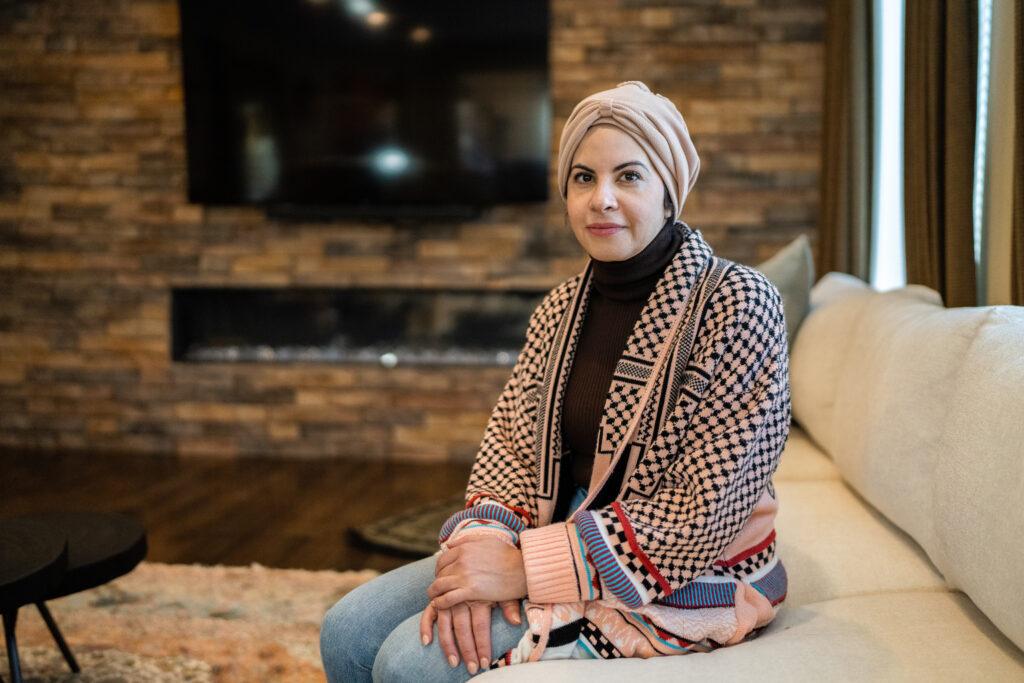
“I think we lost 14 people in that one night. And all of these were women and children,” she said. Zuaiter said her older female cousin, the cousin’s two 20-something daughters and grandchildren, aged 4 to 12, were killed – fourteen people in all. “So that was the list of our first shock of losing such a large amount in one time,” she said. Since then, she’s heard that about 50 of her family members have been killed or are unaccounted for.
“It’s surreal because your mind can’t explain or understand,” Zuaiter said. She said she has been hearing that the reason women and children comprise so many of the dead is that they have been huddling together inside of buildings so the women can comfort the children. Meanwhile, she’s also hearing that men have been staying outside in the streets, prepared to pull people out from mounds of rubble as apartment buildings and other structures turn into craters right before their eyes.
Men, even as they witness atrocities, she said, have been stoic. “Maybe they’re compartmentalizing or they haven’t realized their trauma, but they will go through the pain at first, and they just move on and try to help the next people and help the next people, pulling people out of the buildings and try to protect their neighborhood,” she said. “Maybe it’s a man’s way of not dealing with trauma, whereas us women are, we’re the ones that are sitting there watching it over and over again, worrying more about it.”
Some of her family members didn’t know what to make of the advice to leave Northern Gaza and head south. “They’re like, ‘What’s the point? I’m not going to go to the south . . . and just sleep in the streets and hope someone will take me in,’” she said. Those who did go south found a lack of safety there, too, she said. “So there’s a sense of panic of, ‘Where should we go?’ There’s nowhere safe.”
Some of her relatives are fearing the specifics of their own deaths, Zuaiter said. One cousin, who’s finally pregnant after five years, is terrified of what could happen to her body and that of her unborn baby, if she were caught in the violence. Meanwhile, the spotty electricity and internet access leaves her worried about her 98-year-old grandmother who was alive in 1948 and remembers when Palestinians were displaced then.
“She remembers carrying her bags, carrying her backpacks, and she said it was the same exact thing. Before, they were walking, carrying things on their head through the desert. Now, even if they are in cars, it’s the same thing. It makes us sad that at the end of [her] days, you have to deal with this trauma all over again.”
That’s perhaps why she shared stories of the loss of dozens of family members with an unruffled face and tone of voice. “I think all of us Palestinians, we carry with us this generational trauma. We’ve all heard the same stories from our grandparents, the same, almost different versions, same thing.”
While Colorado-based Palestinians are grieving for and trying to support their families in Gaza, some are at the same time engaging with politicians and students, and organizing rallies to keep attention on the conflict and to give a voice to those who might not otherwise be heard.
Reema Wahdan
Reema Wahdan, 43, has devoted much of her time in the past few weeks to organizing rallies at which she calls for a ceasefire and humanitarian aid, as one of the directors of the Colorado Palestine Club, a group of organizers and activists representing the Palestinian community that has more than 3,000 members, she said. Wahdan was born and raised in Colorado to Palestinian parents, and has an aunt living in the West Bank.
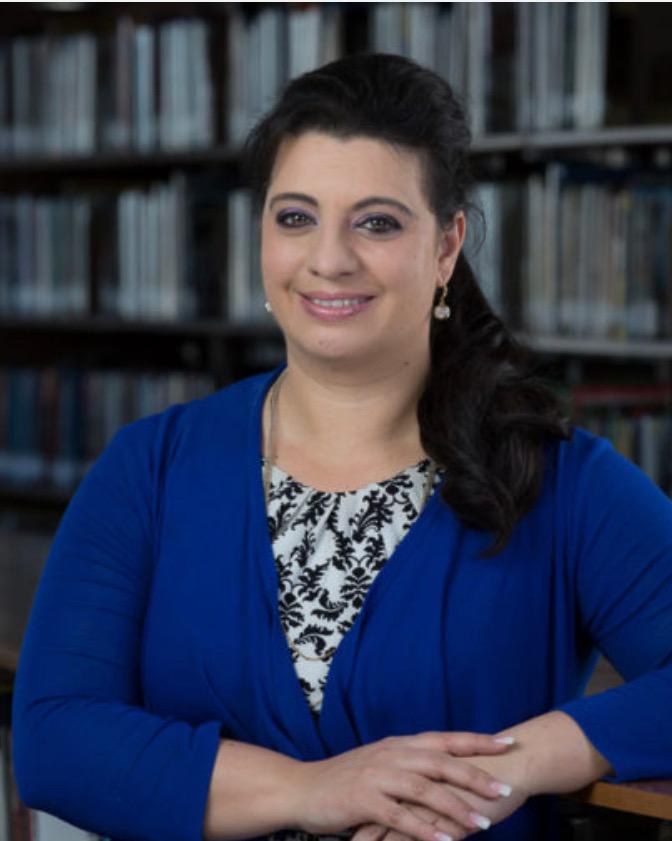
She said over several interviews that she is hearing Palestinian children as young as 13 are being put in jail; that at least 18,000 have been severely wounded, and that over 2,500 Palestinian men have been detained in the West Bank. She also said that she’s learning that only about seven trucks filled with food, water and medical supplies make it through the barriers each day – about half as many that went through on a daily basis prior to Oct. 7.
Without outside supplies, those wounded in the bombings are getting unsafe medical care. “They’ve resorted to using vinegar as an anesthesia. They’re performing surgeries in hospital corridors on the floor, completely not sanitary,” she said.
Her aunt lives in the West Bank, where things have become dangerous: “They all received flyers [placed on their cars and the doors of their homes] in the West Bank from settlers telling them, ‘You need to go to Jerusalem now, and if you don’t, we will kill you.’ The target is Palestinians. It doesn’t matter where you’re at. It’s a dire situation.”
Her aunt’s family have become prisoners of their residences, she said. “And she can’t send her husband or son outside. They will be detained, arrested with no question. They will be shot and killed.”
She’s getting calls and texts throughout the day. “Full family lineages being decimated is unfathomable. It literally is genocide happening in front of our eyes.”
Last weekend, she was one of the organizers of a rally held at the Colorado State Capitol. It attracted about 1,800 people – some Palestinian, others who wanted to express solidarity and concern. At rallies, the focus is on “the urgency of protecting innocent lives, and we are calling for a ceasefire,” she said.
State Rep. Iman Jodeh
Local politicians have expressed support for different sides of the conflict. On Oct. 16, 119 members of Congress signed a letter to President Biden that said in part: “Thank you for your unwavering support for the State of Israel and commitment to its security and stability .... We support any additional Administration measures to ensure Israel has every tool available to defeat radical terror.” Signatories elected to represent Colorado included Reps. Joe Neguse, Brittany Pettersen and Doug Lamborn.
That unconditional support for Israel in the conflict does not sit well with Rep. Iman Jodeh, who has been a state representative for Aurora since January 2021.
Jodeh, 41, who grew up in Colorado to Palestinian refugee parents, said in a recent interview that her district has close to a dozen mosques and a population of many ethnicities and nationalities. Of the support for Israel, as well as President Biden’s reluctance to call for a ceasefire, she said: “Yeah, I mean, first and foremost, we’re upset.”
Last Friday, she received a call from a White House senior advisor from the Office of Intergovernmental Affairs, tasked with finding out from elected Muslims and Palestinians what their constituents have been thinking since the day of the attack. The call lasted about 30 minutes.
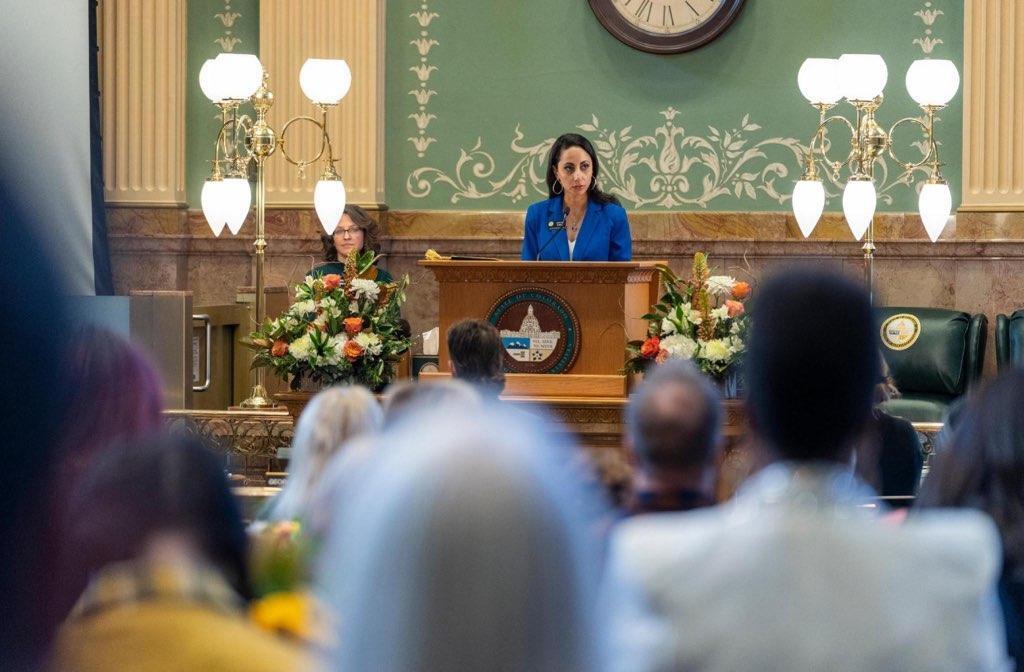
“I expressed our frustration, that we feel like we have no representation in the administration,” she said. “As a Democrat, as someone in my community that has constantly encouraged people to vote for Democrats and our issues, I’m going to have a hard time asking for my community to reconcile [supporting Democrats] who are not calling for an immediate ceasefire, with sustainable humanitarian aid to flow through.”
Jodeh’s view is that unconditional support to Israel is harming Palestinians, and treating all Palestinians as if they were affiliated with Hamas, denies them their rights. She showed up at a recent rally organized by Wahdan to say so.
“I talked about how rights for Palestinians should not be controversial,” she said. “I spoke to the need for us to support basic human rights for Palestinians – that we deserve human rights without prejudice, that we deserve to live in dignity and the right to self-determination.”
Since the escalation of violence in Gaza, her constituents have reported an increase in Islamophobia. “Our students are being called ‘Twin Towers,’’’ she said. “The homes of Palestinians are being shot at; our businesses are being threatened. Our houses of worship are getting calls and saying, and I quote, ‘Can I order a suicide bomber?’”
She has been trying to speak up for the people in her district while fielding calls from the media and attending the rallies organized by Wahdan. It’s to be the voice for her constituents “so they feel like they have an ally in a place [the government] where they traditionally have not had a voice or representation.”
Since Oct. 7, “I think that in my professional capacity, I am working with my colleagues behind the scenes to help them understand what it is to be Palestinian … while also understanding that [they] have their own constituents who are experiencing the same things that I’m experiencing.”
In her case, that’s also a loss: Recently, she learned from her sister-in-law that 24 family members were killed.
Karim Mattar
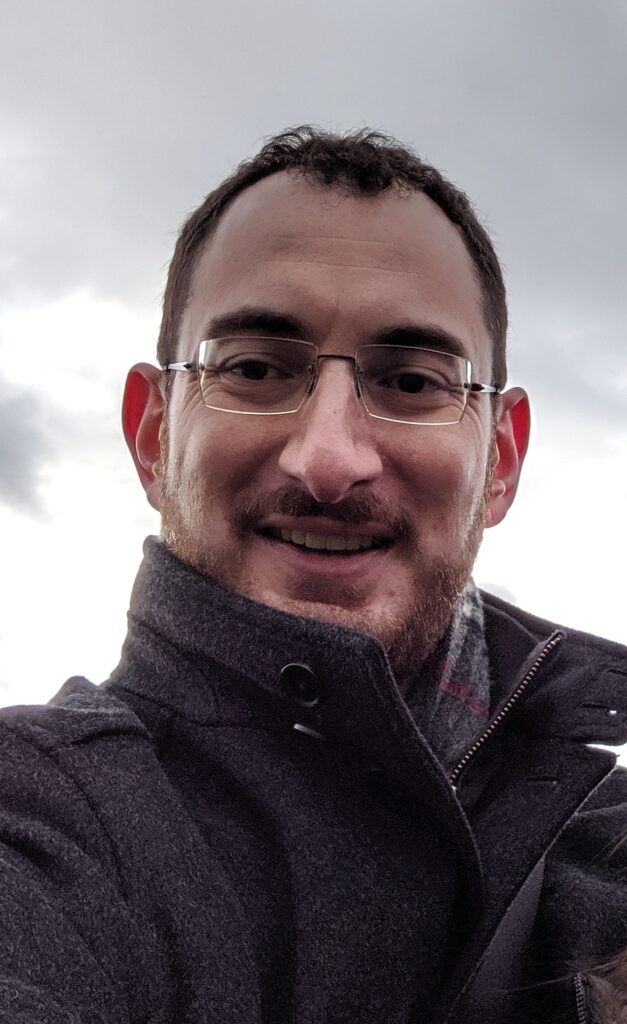
Often, there’s nothing that Coloradans can do about what they are hearing in Gaza, but having a place to discuss it is something University of Colorado Boulder Associate Professor of English Karim Mattar, 42, can offer. His expertise is in teaching comparative Middle Eastern literature, particularly that which has stemmed from the conflict between Israelis and Palestinians.
In a recent interview, Mattar said he hears views in the classroom that match the views expressed by local families and activists outside of it. “My students are deeply moved and upset about the loss of human life in Israel and in Palestine alike,” he said.
He’s made in-class conversations about the violence possible without imposing his own points of view. “It’s my job to facilitate discussion and to create a platform for people with different backgrounds and viewpoints … to engage with one another in a respectful, knowledgeable, insightful way.”
He said that a ceasefire and humanitarian aid are both top of mind, adding, “Continued bombings of residential buildings, schools, hospitals, churches, mosques and other aspects of civilian infrastructure makes the question of aid secondary to that of a ceasefire.”
ShemsAdeen Ben-Masaud
The same things Mattar’s students are talking about are being talked about in mosques, where people who are Muslim, which many Palestinians are, have been going to pray more frequently since the attacks, according to one local imam.
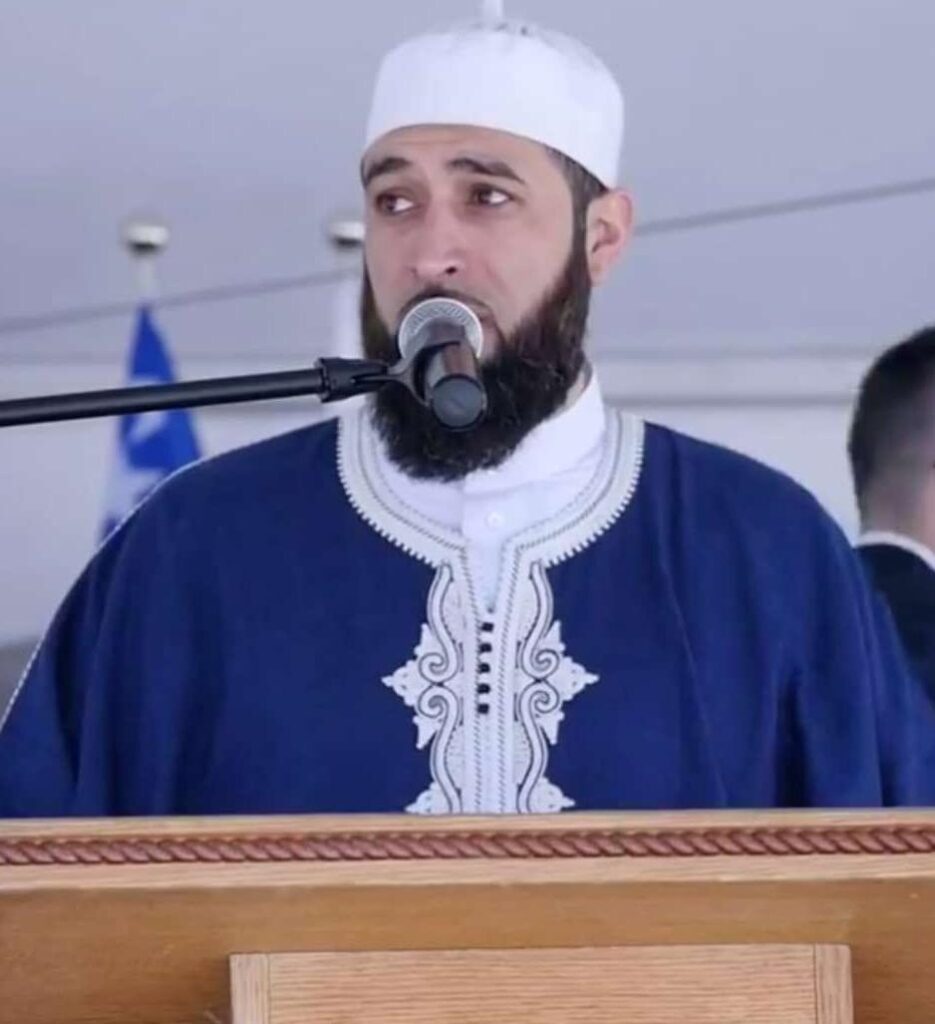
“Everybody’s eyes and hearts and prayers are turned towards Gaza and Greater Palestine at this time,” said ShemsAdeen Ben-Masaud, 41, who is the imam and director of student affairs and community engagement at Crescent View Academy in Denver, where he leads a mosque serving students and their parents. “There’s extra prayer, like supplications, like calling out to God for his mercy and to help the people who are suffering, the orphans and the widows and the older people and the younger people, to have mercy on them, mercy on the people who are alive, to replace what they’ve lost with new homes, and with rewards in the next life as well.”
He said that recently, he’s seen more people filling seats at the mosque he leads and elsewhere and that they’re happy to see familiar faces. Often, however, people are showing up conflicted, with feelings of guilt and helplessness.
“You’re happy, you’re smiling to see them, but at the same time you feel guilty that you’re smiling,” he said. “‘Why do I deserve to eat this delicious food? And should we be eating right now? Should we be smiling right now when we have brothers and sisters who don’t have food or water or shelter or have lost children or loved ones?’ Yeah, so there’s extra prayers, there’s extra tears. The mosques, I think they are more full now.”
Unanswered Questions
Even as people find community with others who are sharing their pain, many are left frustrated, and some questions are left without answers. For Zuaiter in Lone Tree, for example, there are many moments of helplessness, especially when power and internet outages leave her unable to find out what’s happening.
“Everyday I call my friends, we all have the same situation. We’re all in tears; we’re all depressed; we’re walking zombies; we’re seeing what’s going through and there's just no hope,” Zuaiter said. “I mean, it’s just bleak. So us as Palestinians, we’ve been carrying around this heavy, heavy burden.”
Like Jodeh, Zuaiter is bothered by what she says she sees as the absence of humanity globally for the need to bring in aid by allowing trucks to pass through Egypt to bring in food, water, fuel and supplies. Of Biden, she said she is disappointed that he has not aggressively called for a cease-fire.
“You always have this hope that he would have been better, he would have done better. He would have understood the different demographics, different ethnicities,” Zuaiter said. “I have no idea why they feel the need to raze Gaza to the ground before they send in aid. What more are they waiting for?”









